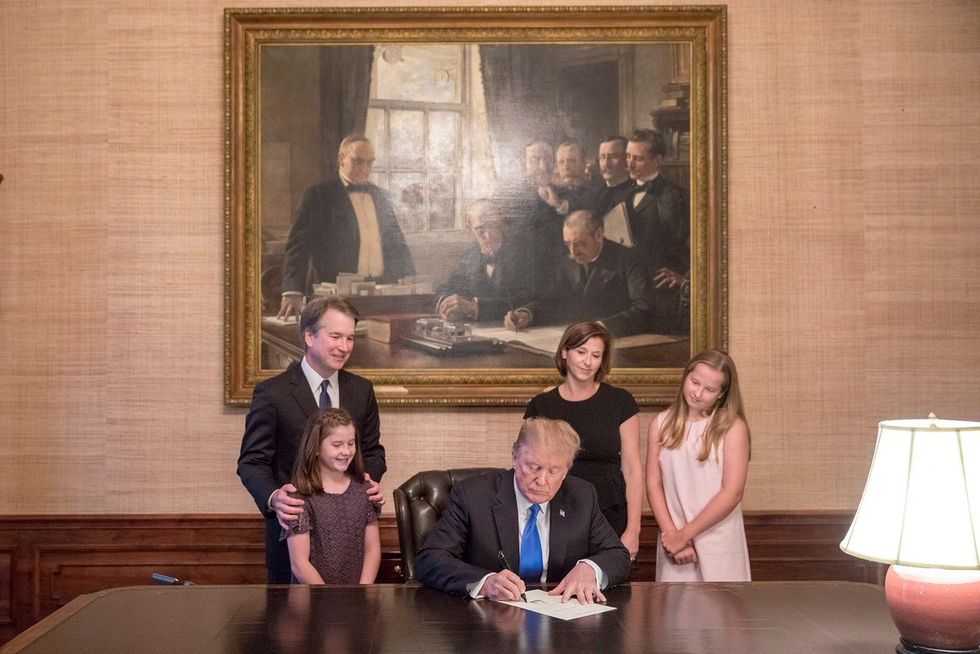Earlier this month, President Donald J. Trump nominated Brett Kavanaugh to the Supreme Court to replace retiring Justice Anthony Kennedy. If confirmed by the Senate, which odds are highly in favor of, the Court will most definitely witness a drastic shift to the right.
Sworn-in in February of 1988 under the Regan Administration, Justice Kennedy was what political scholars referred to as a "median justice". Essentially speaking, Kennedy was given the swing vote when it came to several decisions that split along ideological lines separating the left and right. With the clearly right-leaning Kavanaugh most likely taking the bench very soon, this will mean that Justice John Roberts, a much more conservative justice, will be taking the unofficial role of the "median justice".
While Roberts, much like Kennedy during his time, has been seen slowly but surely inching towards a more moderate stance since his appointment in 2005, his set-in-stone views on highly-controversial matters such as reproductive rights aren't very reassuring to liberals who fear this drastic shift in what is considered the court's median justice.
Considering that Justice Roberts is only sixty-three years of age as of now, there is very much a possibility that he could remain on the bench well into his 80s, holding a highly influential stance for over two decades. While a change in Roberts' standings is always a possibility, his career-record so far makes this idea seem unrealistic. If Roberts carries himself as expected, it's likely that America will witness a marginally conservative court.
Fundamentally, in order for Brett Kavanaugh to even take the bench, fifty votes are required for the US Senate to either confirm or not confirm him. As of July 25, forty-seven senators are being identified as support/lean support, forty-one senators are being identified as against/lean against, and twelve senators are identified as neither. While undoubtedly an uphill battle, this would mean that all forty-nine Democratic senators would need to vote against the confirmation with an additional one Republican senator stepping to the other side of the aisle to stand with them. It should be noted that Senator John McCain (R-AZ) will most likely be absent from the vote due to his battle with brain cancer.
Overall, the coming years will likely see a drastic shift in the court's position and America's jurisprudence regardless of whether Kavanaugh is confirmed or not. With liberals Justice Breyer and Justice Ginsburg being the court's oldest justices, their eventual and inevitable departure from the bench will lead to another battle between liberals and conservatives for representation in the Supreme Court.

















